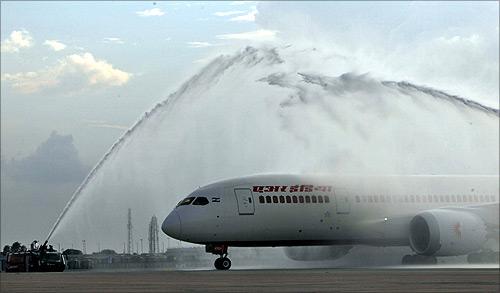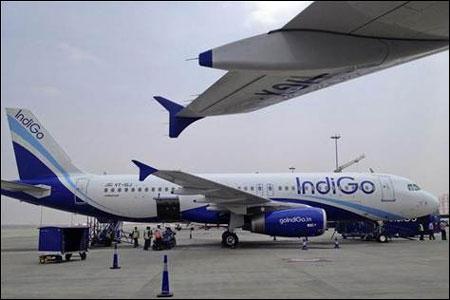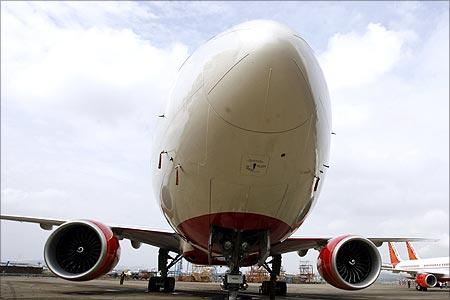
Ending a long-pending dispute over sharing of sky for civilian and military traffic, Cabinet Committee on Security (CCS) on Friday approved easing restrictions on airspace use that would lead to straightening of routes as well as slashing of flying time and fuel consumption.
The CCS, at its meeting, cleared the Flexible Use of Airspace (FUA) by civil and military users, a decision which would not only reduce fuel consumption and carbon emission, but would also straighten several major trunk routes, an official spokesperson said.
...

With the implementation of FUA, "there will be a fuel saving of 20,29,380 kg per annum and reduction of carbon dioxide emission by 63,93,600 kg per annum by direct routing" between several city pairs, the spokesperson said.
These city pairs would include Delhi-Mumbai, Delhi- Kolkata, Delhi–Chennai, Delhi-Hyderabad, Delhi-Bengaluru, Kolkata-Chennai and Chennai-Mumbai.
The CCS also approved a proposal to set up a National High Level Airspace Policy Body (NHLAPB) that would carry out strategic planning and assess the national airspace requirements of various stakeholders, the spokesperson said.
...

The NHLAPB, chaired by Civil Aviation Secretary, would have representation from the Defence Ministry, airforce, navy, Indian Space Research Organisation, Airports Authority of India and Directorate General of Civil Aviation.
It would establish an FUA structure and introduce procedures for their allocation to the airspace users.
...

The Defence Ministry has agreed to the FUA proposal, subject to ensuring adequate safeguards in the system to prevent inadvertent leak of military information and dissemination of any information on military aviation activities "strictly on 'need to know' basis", he said.
Maintaining that the issue had remained "unresolved" for several years, he said sharing of airspace on a need basis by civil and military users was "an urgent national requirement".